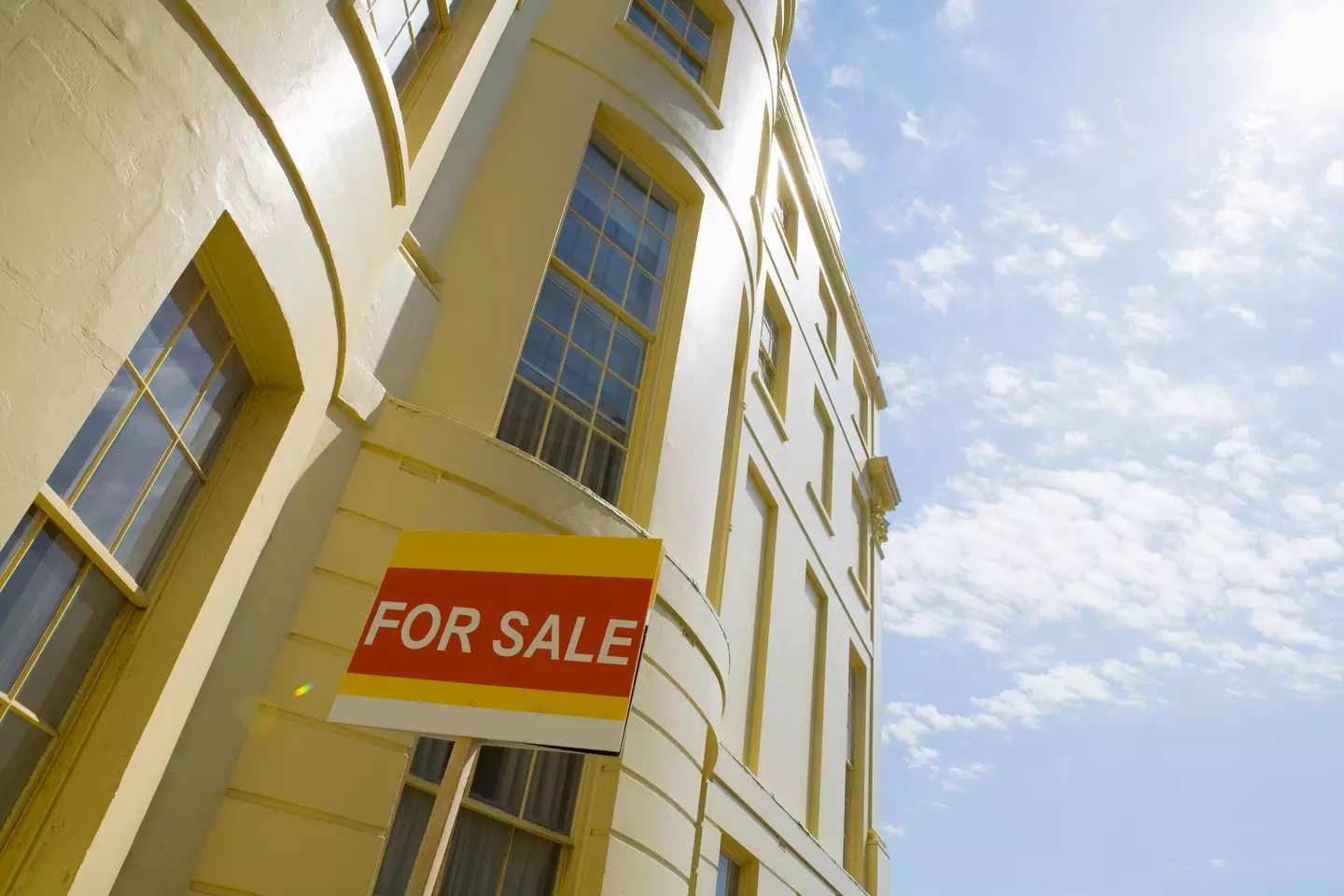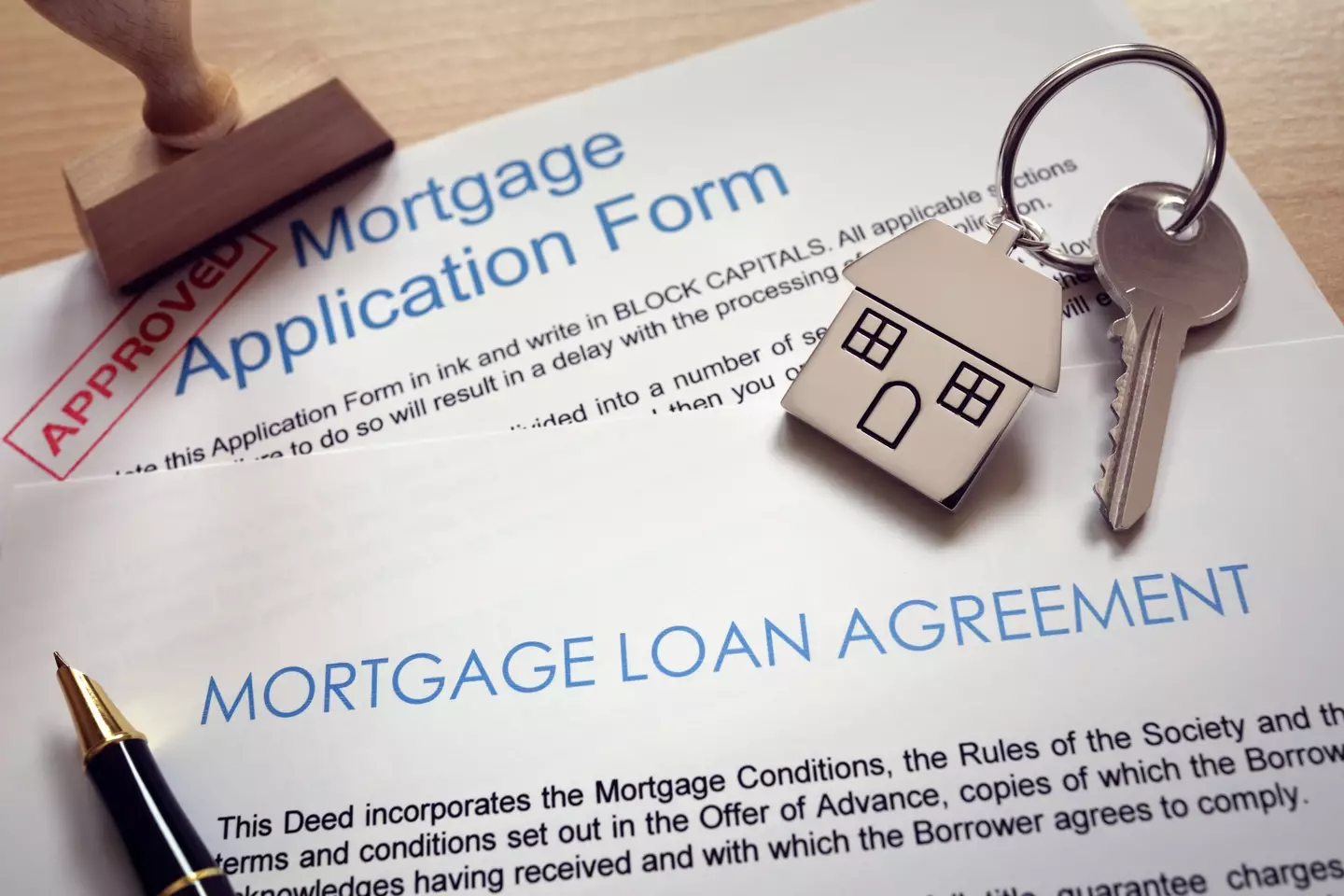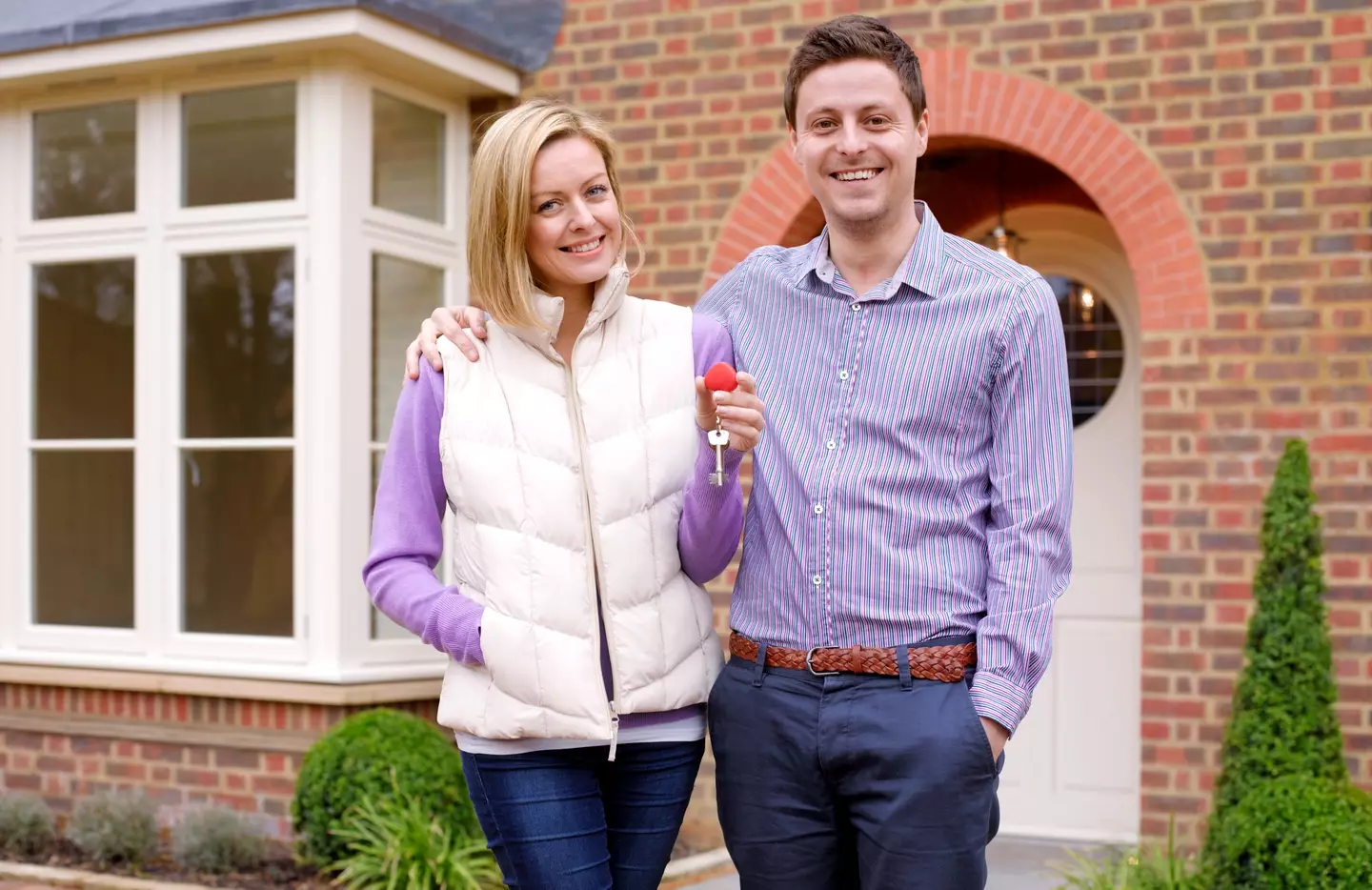
In news that will come as pretty much no surprise, the housing market is pretty f**ked as prices have risen at rates that far outstrip wage growth, making it increasingly difficult to get a foot on the ladder in the first place.
As if that wasn't bad enough, sluggish income growth over the years has made it difficult to build up a pile of cash that could be used on putting a deposit down.
Of course, hoping that house prices would fall in any meaningful way sounds like wishful thinking, as that'd screw over all the people already on the property ladder who could end up being trapped in negative equity, where the cost of their mortgage is higher than the value of their house.
Advert
Enter a new scheme designed to make it so that you can get a foot on the property ladder without having too much in the way of savings which also doesn't involve trying to bring house prices down.
This is a new one percent mortgage for first-time buyers, where people can buy homes valued at up to £500,000 with just a one percent deposit, meaning that at most you'd need £5,000 to buy a house with this scheme.

It's been introduced by the Yorkshire Building Society and will be available through England, Scotland and Wales, but only first-time buyers will be able to participate.
Advert
Their director of mortgages Ben Merritt said research indicated £5,000 was the right amount for first-time buyers who needed to be ready to pay a mortgage.
Under the deal, the mortgage would require a £5,000 deposit for a five year fixed rate mortgage at 5.99 percent, which is basically six but sounds slightly lower.
If you've never owned a house before and won't be 70 or older by the time the mortgage term ends, then you can get one, but it's not for new-build properties or flats.
Obviously with such a low initial deposit on a mortgage, the consequence is going to be high interest rates and a high monthly repayment, so hold your horses before you start thinking it's all going to be sunshine and roses from here on out.

However, a warning has been fired out over these new first-time buyers mortgages as according to City A.M., brokers are concerned that such a scheme would just crank up house prices even higher.
Advert
In general when getting a mortgage, you're expected to get together a deposit of at least 10 percent, which isn't easy to do when you're young, in a job that pays like s**te, paying obscene rent and everything is getting more expensive.
You can quite clearly see the problem at work here - if you use these devices to bring down initial costs of getting on the property ladder, that'll increase demand and without a concurrent increase in supply the prices will go up.
Stephen Perkins, managing director at Yellow Brick mortgages said: "Whilst this could help remove one of the largest barriers to home-ownership and the need for family support, borrowers will still need to be able to afford and obtain a 99 per cent mortgage, which based on the huge disparity between house prices and incomes, means such a scheme would in fact only benefit a small minority."

Meanwhile, an increasing number of homeowners are falling behind on mortgage payments.
Advert
Trade body UK Finance recorded that last year, there was a 30 percent rise of mortgages in arrears by at least 2.5 percent, and forecast another increase of 22 percent in that amount for 2024.
Other experts have warned that owning such a small stake in a house would leave first-time buyers horribly exposed to the risks of negative equity, where the house is worth less than the mortgage on it.
Mortgage expert Karen Noye told Yahoo News: "Naturally, anything that helps generation rent get on the housing ladder should be applauded but there is a very real concern that if the 99 percent mortgage scheme were to be put in place, having such a high loan-to-value mortgage would expose buyers to the risks of negative equity.
"If house prices drop, then only having one percent equity in a property leaves the buyer with a minuscule amount of equity to play with."

She said that 'lenders like Halifax have predicted a two to four percent fall in house prices this year', and while that'll nowhere near bridge the gap between incomes and house prices it's enough to stick first-time buyers in negative equity within the first year of being on the property ladder.
Advert
The average deposit put down on a house bought in the UK last year was £53,414 - a decrease on the £62,471 average figure from 2022.
You might be hoping to shift onto a mortgage to get out of renting, as at least that way a honking massive chunk of your monthly income is going onto a home you (sort of) own instead of being funnelled directly into the pockets of some landlord.
Only banks don't accept a proven track record of paying rent on time as proof that you could afford a mortgage.
This is supposed to be because there's all sorts of other payments involved with outright owning the house, and the fact you'll be paying a mortgage for years to come, which lenders see as very different to showing you've been able to pay a comparable rate of rent for a shorter period of time.
Featured Image Credit: Getty Stock ImagesTopics: UK News, Money, Home, Cost of Living